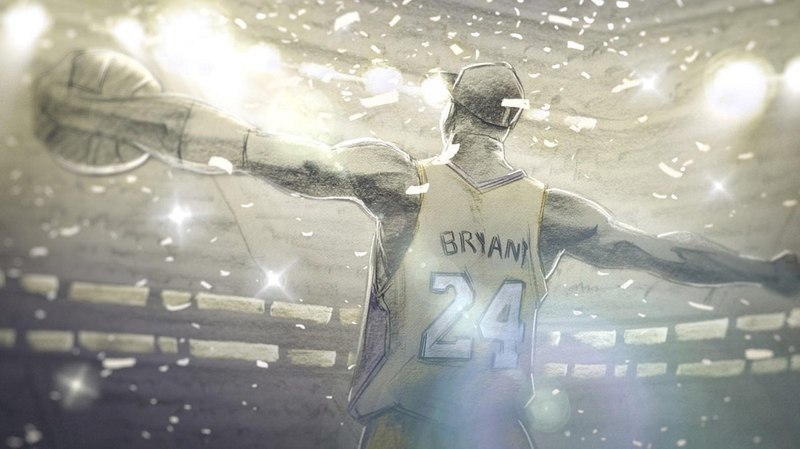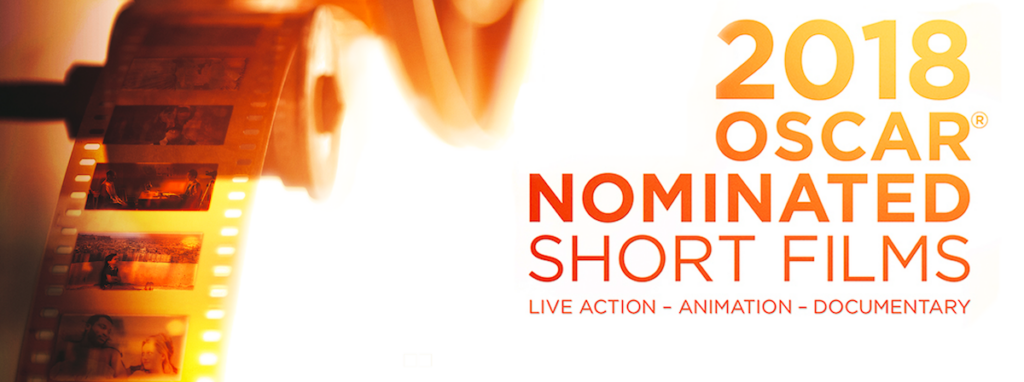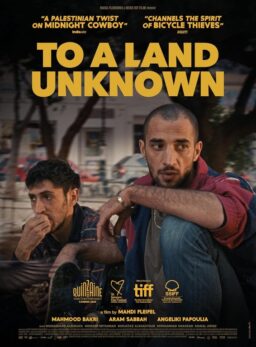Is there a formula for how the Academy usually picks the winners for the Short Films? I have often said (and have seldom been proven wrong) that usually the English language crowd-pleaser wins the Live Action award. The Pixar film (or the most kid-friendly film, which is often one and the same) usually wins for Animated. Documentary is trickier, because every film nominated carries varying degrees of social and global importance (last year, they nominated two short docs about Syria. “The White Helmets”–which is very similar to this year’s feature doc nominee “The Last Men in Aleppo”– took home the award). I’ve been keeping track all these years and this is how it has gone. You can judge for yourself, though, when Magnolia Pictures and Shorts TV release the nominees theatrically and via streaming on iTunes, Direct TV and Vimeo On-Demand (for a complete list and all info, click here). “Heroin(e)” is available on Netflix, as was “White Helmets” last year. Maybe that’s the formula for Doc Shorts? We’ll see.

LIVE ACTION
“Dekalb Elementary” – (21 min.) An armed young man (Bo Mitchell) enters an elementary school without much of a plan. He has no intention of killing students and he doesn’t care if he dies. The compassionate receptionist (Tarra Riggs) does what she can to try and talk him down while mediating between him and the police outside. This is essentially a two-characters-in-a-room piece “based on actual events.” The performances are every good, especially Riggs, who, in a way, recognizes this young man’s desperation in her own past, but viewers might wish there was a little more substance behind it other than the fact that this event actually happened.
“The Silent Child” – (20 min.) Every year, there is at least one nominee about a child in peril or in a difficult situation. This film centers on a little deaf girl named Libby (Maisie Sly), who does not communicate much with her parents and vice versa. They hire a sign language specialist (Rachel Shenton, who also wrote the film) to help Libby with her communication skills, but when the teacher advocates for the continual use of sign language over lip reading, the parents push back. This well-meaning and well-acted film’s heart is in the right place and the coda at the end is a noble call to action to help deaf children in schools across the country. However, do we really need subtitles for perfectly understandable English accents?
“My Nephew Emmett” – (20 min.) Money, Mississippi on August 28, 1955, the date young Emmett Till (Joshua Wright) was taken from his Uncle’s home and killed after whistling at a white woman. His Uncle Mose Wright (L.B. Williams) identified Till’s dead body the next day. The film tells the story from Wright’s point of view as he bids farewell to his nephew early in the evening, hears about Till’s actions from a friend, then braces for the inevitable home invasion from those who want Till to pay dearly for his innocent mistake. Writer/director Kevin Wilson Jr. paints as realistic a portrait as he can of these events while giving every actor a strong moment of doubt, fear, anger or love. Wright’s story is one of a heavy lifelong burden that he was unable to protect when he felt he could and “My Nephew Emmett” tells that story well.
“The Eleven O’Clock” – (13 min.) This one feels born out of an improv exercise at an acting class as a psychiatrist (Josh Lawson, who also wrote the film) must deal with a delusional patient (Damon Herriman) who believes himself to be the psychiatrist. The back-and-forth between them can be fun, but it won’t be hard to guess the ending. Still, the pleasant, English-language crowd-pleaser usually wins in this category and this might be it.
“Watu Wote – ALL OF US” – (22 min.) Tells the true story of a Christian bus passenger named Jua (Adelyne Wairimu) in Kenya who travels across the border into Somalia as mistrust between Muslims and Christians is on the rise. She meets a teacher named Salah (Abdiwali Farrah), a Muslim who befriends her. Hearts and minds get put to the test of everyone on board when terrorists take over the bus and order everyone off, separating Christians from Muslims. The coda leans heavily on the story of Salah, which doesn’t quite fit since the story is told from Jua’s point of view. That could be the fault of the short film form more than anything. A feature would likely do better at making the piece feel more whole and complete, exploring both stories more fully. This is still the best of the bunch—perfectly acted and confidently executed—and, oddly enough, the only nominee this year not in English.

ANIMATION
“Dear Basketball” – (6 min.) A love letter from Kobe Bryant (who wrote, narrated and produced) to the sport that made him famous. Told in sparse pencil drawings, Bryant recounts his days as a child throwing rolled-up tube socks around his bedroom, imagining himself in a big sports arena and making the final throw with five seconds left on the clock. Of course, it’s incredibly earnest and self-serving, but the simple pencil drawing aesthetic is a nice contrast to the spectacle of his life on the court. Music by John Williams.
“Negative Space” – (5 min.) A wonderful five-minute piece about a man who recounts his relationship with his father, who was often away on business. The two only bonded when it came to the subject of how to perfectly pack a suitcase. Ru Kuwahata and Max Proter’s film has an emotional impact that transcends the oddness of the characters’ appearance and counters the sadness of the story very nicely. I wouldn’t have minded this being longer.
“LOU” – (7 min.) Here’s the annual Pixar nominee for the year and likely winner (Pixar hasn’t always won this category, but you’d be foolish to bet against them). This one tells the story of a schoolyard bully named Lou who steals toys from his classmates, only to have those items develop a mind of their own, which causes a peculiar showdown. Another beautifully executed, wordless tale with an (un)expected emotional climax and another example of why Pixar are the masters at this sort of thing.
“Revolting Rhymes” – (29 min.) By far the longest of the five nominees. Comedic, modernized and fractured retellings of Grimm fairy tales is nothing new, of course, but Roald Dahl’s versions—via his “Revolting Rhymes” poems, upon which this film is based—were fiendishly clever and appealed to more than just young audiences. The animation is passable enough, but Dahl’s work—mischievious and unpredictable—is lovingly rendered as it blends the three stories together in a single narrative and is brought to life with quick comic asides and a clear love of the original text.
“Garden Party” – (7 min.) My favorite of them all. This film uses photorealistic animation that looks absolutely stunning as we watch a group of frogs explore an abandoned mansion that could be the aftermath of an apocalypse (or at the very least, an extremely violent event). The frogs find all kinds of goodies in the house as well as a giant swimming pool, which provides a great visual gag that had me laughing out loud. Credited to six directors (and very little else in the way of credits here), “Garden Party” is what could happen if Pixar ever indulged in a darker, more twisted scenario. Not for kids.

DOCUMENTARY
“Edith+Eddie” – (29 min) Edith and Eddie met while playing the lottery in Virginia 10 years ago. They got married at the age of 95 and 96, but family members, lawyers and estate planners conspire to keep them apart for the sake of money, as two sisters fight for custody of their mother. This film is an emotionally charged experience that will likely be a big favorite among viewers and voters, so long as they don’t think too much about some of the crucial story elements missing here, as there are some motivations among key players here that are not fully explained.
“Heaven Is A Traffic Jam on the 405” – (40 min.) Frank Stiefel’s portrait of an artist takes a look at Mindy Alper, who lives with acute anxiety, depression and mental disorders, but who channels all of her pain into her art, which consists of beautiful illustrations of ugly behavior as well as stunning papier mache sculptures that tower over every onlooker. Stiefel tells a very intimate and hopeful story of Alper’s childhood abuse and how her past informs her present. One of the most striking images of any of these films is that of Alper’s large-scale sculpture of her mother, which looks both authoritative and empathetic. Papier mache has rarely been so expressive and Stiefel’s film is a loving and complete portrait and tribute.
“Heroin(e)” – (39 min.) Huntington, West Virginia has been called “the overdose capital of the world.” This film follows three individuals who have played key roles in the recovery of several addicts. A deputy fire chief is always among the first to arrive at the scene of an overdose; a judge who presides over “drug court” provides a smile, encouragement and tough love when necessary for each addict who has to check in with their progress; and a woman who drives through the streets of Huntington with bags of food tries to steer street walkers into the right direction. As the title suggests, it is all women in these roles and they are each inspiring and worthy of their own doc.
“Knife Skills” (40 min.) Another film about recovery (of sorts), this tells the story of Edwins Restaurant in Cleveland, OH, which aims to be one of the top French restaurants in the country. Its staff is made up of almost entirely ex-cons. The owner himself is an ex-con who believes in the rehabilitation process by giving former felons a sense of purpose. But can they make it through the rigorous training and schooling involved in the six weeks before opening day? The film does a good job of giving an overview of the restaurant, its future employees and their struggles, but the ending would have been more effective if given the chance to be a feature. Here’s hoping. It will, no doubt, make you very hungry.
“Traffic Stop” (30 min.) In 2015, an elementary school teacher named Breaion King was pulled over for a routine traffic stop, which escalated into a horrific incident that ended up with her being arrested only because she was a black woman at the hands of a racist white cop. The film cuts effectively back and forth between the police car dashboard cameras of the incident and King’s life as a teacher and dancer, conveying the dichotomy between dreams and reality in the lives of African Americans and the possibility that it can happen to anyone. This powerful film will air on HBO on February 19th, with an early preview on February 16th on HBO GO, HBO NOW and HBO On-Demand.
For more information on this year’s Oscar-nominated shorts, click here.












